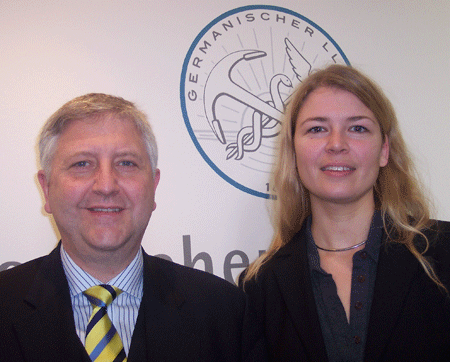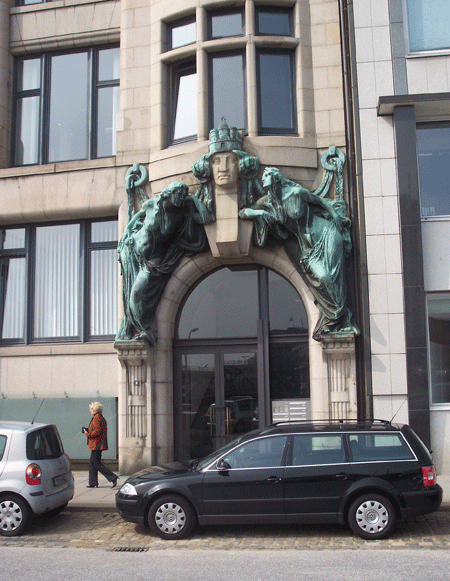Cool Chain Certificate Means Standards
 A
new quality standard ensures improved and safer transport of temperature-sensitive
products. A
new quality standard ensures improved and safer transport of temperature-sensitive
products.
The quantity is staggering: every year,
approximately 116 million metric tons of temperature-sensitive goods are
transported around the world, a lot of it by air freight.
The diverse types of products range from
medical supplies and pharmaceuticals to fruits, vegetables and fresh flowers.
A problem all these products share: if the
cool chain is interrupted somewhere between the sender and the recipient,
the shipment usually has to be destroyed.
Like in India for instance.
There, approximately 40 percent of the exported
perishables are rendered useless as a result of mistreatments in the refrigerated
chain on the way to their final destinations.
An unbelievable micro- and macroeconomic
loss!
However, India is just one example. Many
problems also occur during the transport of perishables and pharmaceuticals
between Europe and the U.S. or East Asia, as shown by a study conducted
by Germanischer Lloyd Certification (GLC), a company headquartered in
Hamburg, Germany.
Of more than 250 analyzed errors that occurred
during air transport, 36 percent of all recours e
claims were due to temperature deviations, 31 percent were caused by delays
along the transport chain, and 6 percent resulted from handling errors
at the warehouses of forwarders, handling agents, or at the airports. e
claims were due to temperature deviations, 31 percent were caused by delays
along the transport chain, and 6 percent resulted from handling errors
at the warehouses of forwarders, handling agents, or at the airports.
To better this performance substantially,
GLC has defined industrial standards together with the Cool Chain Association,
which was established in Luxemburg in 2003.
"Until two years ago, there were no
clearly defined quality standards for these highly sensitive, frequently
high-quality goods," explains spokesperson Kerstin Belgardt of the
Cool Chain Association.
Meanwhile, interested companies can download
these standards from the Internet (www.ccqi-standard.com),
an offer from which many companies have already benefited.
"The market launch of our Cool Chain
Quality Indicator has paved the way to a substantially increased awareness
in the industry and improved results in the transport of temperature-sensitive
products," says GLC Managing Director Bernhard Staender, describing
the positive development.
The indicator systematically lists the requirements
for airports, airlines, carriers, shipping companies, and forwarders,
rating these with points.
For example, a warehouse operator with a
refrigerated warehouse is given a high score.
If an airport only has a shaded area for
parking refrigerated containers, the score is very low. Manager Staender
explains the criteria as follows: "To receive certification, companies
must score at least the defined benchmark of the possible points."
Companies that meet the quality standards
of the Hamburg-based and worldwide acting certification body are part
of an exclusive club.
"They are the best of the best and
represent a yardstick for the rest of the industry," comments Staender.
The reward is an increased order volume,
as the 50-odd member companies of the globally active Cool Chain Association
prefer to cooperate with service providers who have a quality certification
for the transport and handling of temperature-sensitive goods.
“The certificate is the reward for
a company’s intensive efforts to put the CCQIs into practice,“
says Staender.
“Often additional measures such as
personnel training or investments in new technologies and equipment are
necessary to live up to the high standard.”
Billund Airport in Denmark, a traditional
hub for salmon and other perishables, has done this with great success.
Others will follow soon, as evidenced by
the great demand for certification from the Hamburg-based inspection company,
as e.g. Nippon Express and Continental Airways.
At a symposium held in Hamburg yesterday
at the Annual General Meeting of the Cool Chain Association, experts discussed
how refrigerated transport can be further optimised.
The event was hosted by Germanischer Lloyd,
Vorsetzen 35, D-20459 Hamburg, Germany (www.gl-group.com).
The Cool Chain Association. Kerstin Belgardt, Hohenkampsweg 1a, 28355
Bremen/Germany. T: +49 421 2581 943; F: +49 421 2581 944. www.coolchain.org.
sec@coolchain.org.
Heiner Siegmund
|



